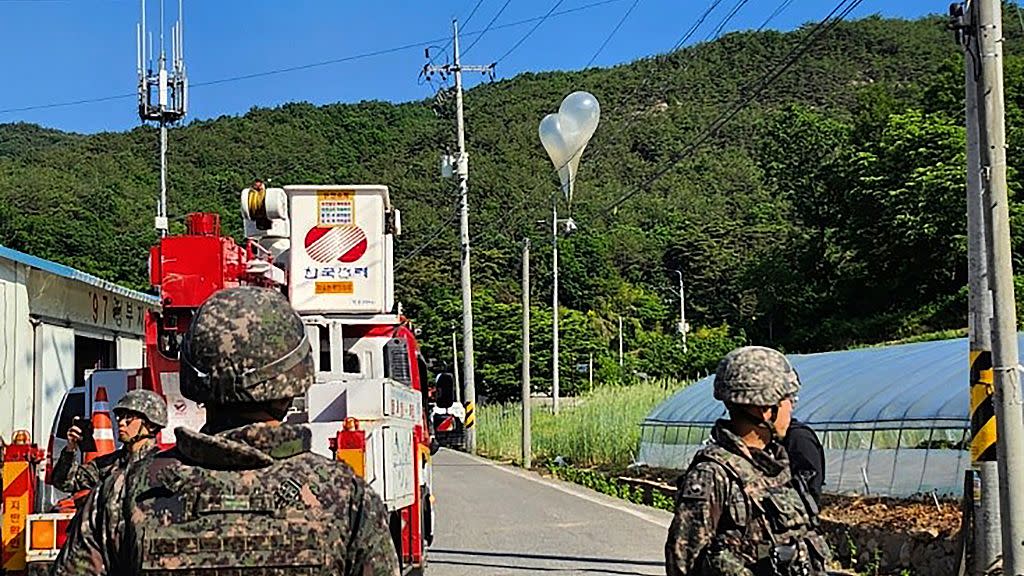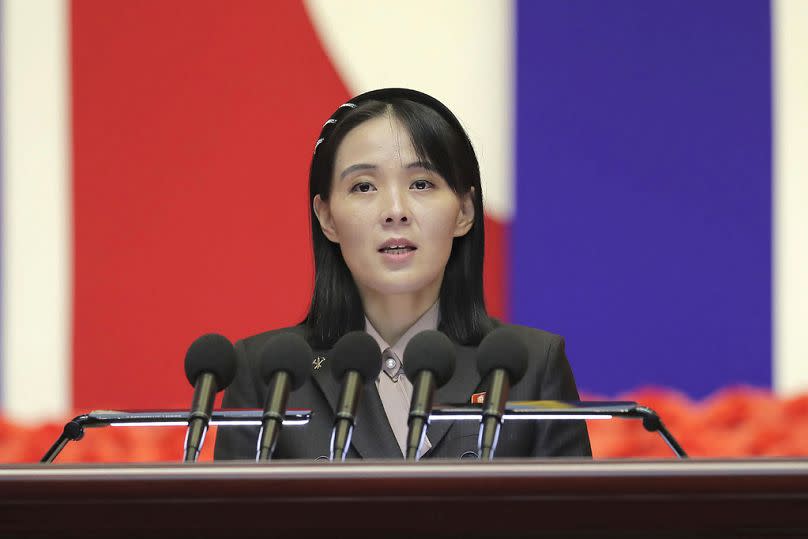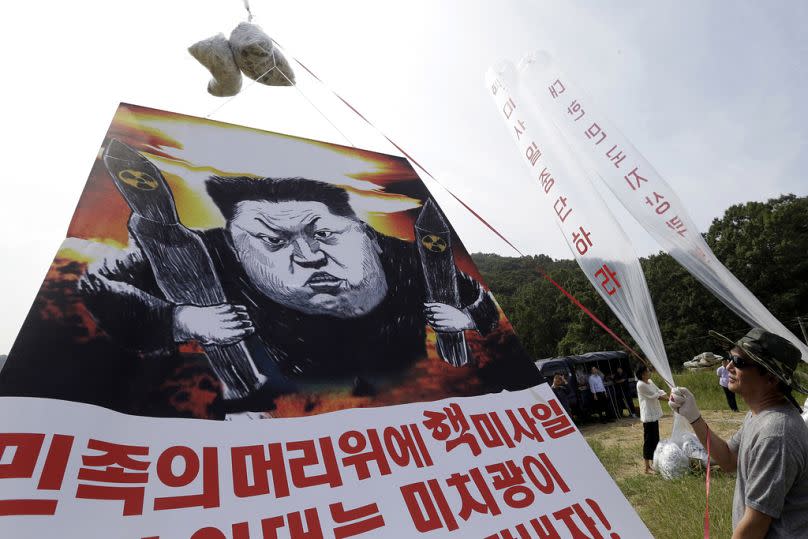'Kim Jong Unsanitary': What do North Korea's trash balloons really mean?

- Oops!Something went wrong.Please try again later.
Manure. Cigarette butts. Scraps of cloth. Waste batteries. Even, reportedly, diapers. This week, North Korea floated hundreds of large balloons to dump all of that trash across rival South Korea — an old-fashioned, Cold War-style provocation of a sort the isolated dictatorship has rarely used in recent years.
The powerful sister of North Korean leader Kim Jong Un confirmed Wednesday that North Korea sent the balloons and attached trash sacks, saying they were deployed to make good on her country's recent threat to "scatter mounds of wastepaper and filth" in South Korea in response to aerial leafleting campaigns launched by South Korean activists.
Experts say the trash balloon campaign is meant to stoke division in South Korea over the conservative Seoul government's hardline policy toward the North. They also say new types of provocations should be expected in the coming months as the North seeks to meddle in the US presidential election.
Here's a look at what North Korea's balloon launches are all about.
What happened?
Since Tuesday night, about 260 balloons flown from North Korea have been discovered across South Korea.
There's no apparent danger, though: The military said an initial investigation showed that the trash tied to the balloons doesn't contain any dangerous substances like chemical, biological or radioactive materials. There have been no reports of damage on the ground.
In 2016, North Korean balloons carrying trash, compact discs, and propaganda leaflets damaged cars and other property in South Korea. In 2017, South Korea found a suspected North Korean balloon again with leaflets. This week, no leaflets were found from the North Korean balloons.
Balloons carrying propaganda leaflets and other items were among the most common tools of psychological warfare the two Koreas launched at each other during the Cold War.
Others have included blaring loudspeakers, giant electronic billboards and signboards set up on the countries' fortified border, and propaganda radio broadcasts. In recent years, the two Koreas have agreed to halt such activities, but they sometimes resume them when tensions spike.
What does the North want?
The North's balloon launches are part of a recent series of provocative steps, among them a failed spy satellite launch and test-firings of about 10 suspected short-range missiles this week.
Experts say the North's leader, Kim Jong Un, will seek to dial up tensions ahead of the US election to try to help former President Donald Trump return to the White House and revive the high-stakes diplomacy they briefly enjoyed during the latter's term in office.
"The balloon launches aren't weak action at all," said Kim Taewoo, a former president of South Korea's government-funded Institute for National Unification. "It's like North Korea sending a message that next time, it can send balloons carrying powder forms of biological and chemical weapons."
Koh Yu-hwan, an emeritus professor at Seoul's Dongguk University, said North Korea likely determined that the balloon campaign is a more effective way to force South Korean President Yoon Suk Yeol's government to clamp down on the South's civilian leafleting.

"The point is to make the South Korean people uncomfortable, and build a public voice that the government's policy toward North Korea is wrong," Koh said.
North Korea is extremely sensitive to leaflets that South Korean activists occasionally float across the border via their own balloons, because they carry information about the outside world and criticism of the Kim dynasty's authoritarian rule. Most of the North's 26 million people have little access to foreign news.
In 2020, North Korea's patience with the civilian leafleting campaigns ran so low that it blew up an empty South Korean-built liaison office on its territory.
Reading the rubbish
North Korea is one of the world's most secretive countries, and foreign experts are keen on collecting any fragmentary information coming from the country.
But Koh said that there won't be much meaningful information in the trash dumps because North Korea would not have sent any important items away tied to balloons.
If the manure is indeed made of animal dung, its examination may show what fodder is given to livestock in North Korea, while general household refuse can provide a glimpse into the circulation of consumer products in North Korea.
But observers say outside experts can get such information more easily from North Korean defectors, their contacts in North Korea and Chinese border towns, and North Korean state publications.

What are the implications?
While the North's balloon activities may deepen public calls in South Korea to stop anti-North Korean leafleting to avoid unnecessary tension, it's unclear whether and how aggressively the South Korean government can urge civil groups to refrain from sending balloons toward North Korea.
In 2023, South Korea's Constitutional Court struck down a contentious law that criminalised the sending of anti-Pyongyang propaganda leaflets, calling it an excessive restriction on free speech.
"From Pyongyang's perspective, this is a tit-for-tat and even restrained action to get Seoul to stop anti-Kim regime leaflets from being sent North."
However, it will be difficult for democratic South Korea to comply, given ongoing legal disputes over the freedom of citizens and NGOs to send information into North Korea," said Leif-Eric Easley, a professor at Ewha University in Seoul.
"The immediate danger of military escalation is not high," he said, "but recent developments show how sensitive and potentially vulnerable the Kim regime is to information operations."

